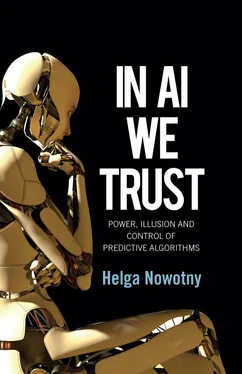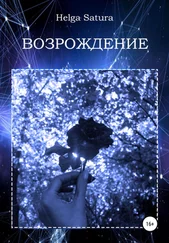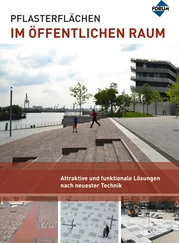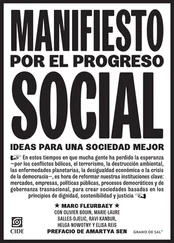LC record available at https://lccn.loc.gov/2021003322
LC ebook record available at https://lccn.loc.gov/2021003323
by Fakenham Prepress Solutions, Fakenham, Norfolk NR21 8NL
The publisher has used its best endeavours to ensure that the URLs for external websites referred to in this book are correct and active at the time of going to press. However, the publisher has no responsibility for the websites and can make no guarantee that a site will remain live or that the content is or will remain appropriate.
Every effort has been made to trace all copyright holders, but if any have been overlooked the publisher will be pleased to include any necessary credits in any subsequent reprint or edition.
For further information on Polity, visit our website: politybooks.com
This book has been in the making for a long time, the strands of thought interrupted by travel and other obligations. There were several unsatisfactory starts and abandonments before what I was looking for came into focus. The actual process of writing benefited, perhaps paradoxically, from several COVID-19 lockdown periods, with the obligatory and, in my case, productive solitude they imposed. As an unprecedented event for everyone living in the twenty-first century, the pandemic also led me to reflect on its many unintended consequences, including some that have a direct bearing on the themes of this book.
My thanks go to all those who supported me in different ways on this long journey. Jean-Luc Lory offered me again a brief stay of hospitality at the Maison Suger in Paris, a wonderful place of calm in the centre of a buzzing metropolis. Another brief stay that I looked forward to, at the Wissenschaftskolleg zu Berlin, had to be cancelled due to abruptly imposed travel restrictions. Despite the missed occasion I was able to remain in fruitful exchange with Elena Esposito. I also want to thank Vittorio Loreto, of the Sony Lab Paris, for an especially inspiring conversation over dinner in Vienna. While the meal was frugal due to constraining circumstances, the discussion was rich. Stefan Thurner, who heads the Complexity Science Hub in Vienna, has been a continued source of inspiration and productive criticism. I received valuable feedback from him on parts of the manuscript, for which I am very grateful. Special thanks go to Michele Lamont at Harvard University for intellectual and moral support throughout the long stretch of the gestation period. Ever since we first talked about the book over a delicious lunch in New York City, Michele has responded to all my queries and provided me with continued encouragement.
When I approached John Thompson of Polity Press at the beginning of summer 2020 with an outline of the book, he responded without hesitation. Ever since, the process of getting the book published has unfolded in an ideal spirit of cooperation. I also want to thank the anonymous reviewers organized by Polity. One of them especially provided me with precious and concise feedback. I am also extremely lucky to have a splendid grand-daughter, Isabel Frey, who volunteered to be my personal editorial assistant. Isabel is not only a wonderful singer of Yiddish protest songs, but an engaged activist and researcher who represents the younger generation acting to change the world. Barbara Blatterer, my long-term personal assistant, took meticulous and efficient care in getting the manuscript through several versions to the final and decisive cuts, advising me also on the book’s cover. To all of you, my heartfelt thanks.
Carlo Rizzuto acted again as my very special personal advisor, reading, commenting and encouraging me when I was doubtful whether I would ever finish. His unfailing humour provided me with the necessary distance from what I was doing. My thanks to him are as much for the ways in which he interrupted my writing as for everything else he gave me during this period.
Vienna and Bonassola, January 2021
Introduction: A Personal Journey into Digi-land
Origins: time and uncertainty; science, technology and society
This book is the outcome of a long personal and professional journey. It brings together two strands of my previous work while confronting the major societal transformations that humanity is undergoing right now: the ongoing processes of digitalization and our arrival in the epoch of the Anthropocene. Digitalization moves us towards a co-evolutionary trajectory of humans and machines. It is accompanied by unprecedented technological feats and the trust we put into Artificial Intelligence. But there are also concerns about continuing losses of privacy, what the future of work will be like, and the risks AI may pose for liberal democracies. This creates widespread feelings of ambivalence: we trust in AI as a bet on our future, but we also realize that there are reasons for distrust. We are learning to live with the digital devices we cheerfully interact with as though they were our new relatives, our digital others, while retaining a profound ambivalence towards them and the techno-corporate complex that produces them.
The process of digitalization and datafication coincides with the growing awareness of an environmental sustainability crisis. The impact of climate change and the dire state of the ecosystem upon which we depend for survival call for urgent action. But we are equally in thrall to or anxious about the digital technologies that are sweeping across our societies. Rarely, however, are these two major transformations – digitalization and the transition towards sustainability – thought together. Never before have we had the technological instruments and the scientific knowledge to see so far back into the past and ahead into the future, nor the techno-scientific capabilities for action. And yet, we feel the need to reconsider our existence in this uncanny present that marks a transition towards an unknown future that will be different from what has been promised to us in the past. This widespread feeling of anxiety has only been exacerbated by the COVID-19 pandemic, itself a major disruptive event with long-term consequences at a global scale.
My journey leading up to this book was long and full of surprises. My previous work on time, especially the structure and experience of social time, led me to inquire how our daily exposure to and interaction with AI and the digital devices that have become our intimate companions alter our experience of time once again. How does the confrontation with geological timescales, long-term atmospheric processes or the half-life of the dissolution of microplastic and toxic waste affect the temporalities of our daily lives? How does AI impinge on the temporal dimension of our relationship with each other? Are we witnessing the emergence of something we can call ‘digital time’ that has now intruded into the familiar nested temporal hierarchy of physical, biological and social times? If so, how do we negotiate and coordinate these different kinds of time as our lives unfold?
The other strand of my previous work, on uncertainty, directed my inquiry towards ways of coping with and managing old and new uncertainties with the help of the powerful computational tools that bring the future closer into the present. These tools allow glimpses into the dynamics of complex systems and, in principle, enable us to identify the tipping points at which systems transition and change the state they are in. Tipping points mark further transformation, including the possibility of collapse. As science begins to understand complex systems, how can this knowledge be harnessed to counteract the risks we face and strengthen the resilience of social networks?
Not surprisingly, I encountered several hurdles on my way, but I also realized that my previous long-standing interest in the study of time and the cunning of uncertainty – which, I argued, we should embrace – allowed me to connect aspects of my personal experience and biographical incidents with empirical studies and scientific findings. Such personal links, however, no longer seemed available when confronting the likely consequences of climate change, loss of biodiversity and the acidification of oceans, or issues like the future of work when digitalization begins to affect middle-class professionals. Like many others confronted with media images of disastrous wildfires, floods and rapidly melting arctic ice, I could see that the stakes had become very high. I kept reading scientific reports that put quantitative estimates on the timelines when we would reach several of the possible tipping points in further environmental degradation, leading to the collapse of the ecosystem. And, again like many others, I felt exposed to the worries and hopes, the opportunities and likely downsides, connected with the ongoing digitalization.
Читать дальше












